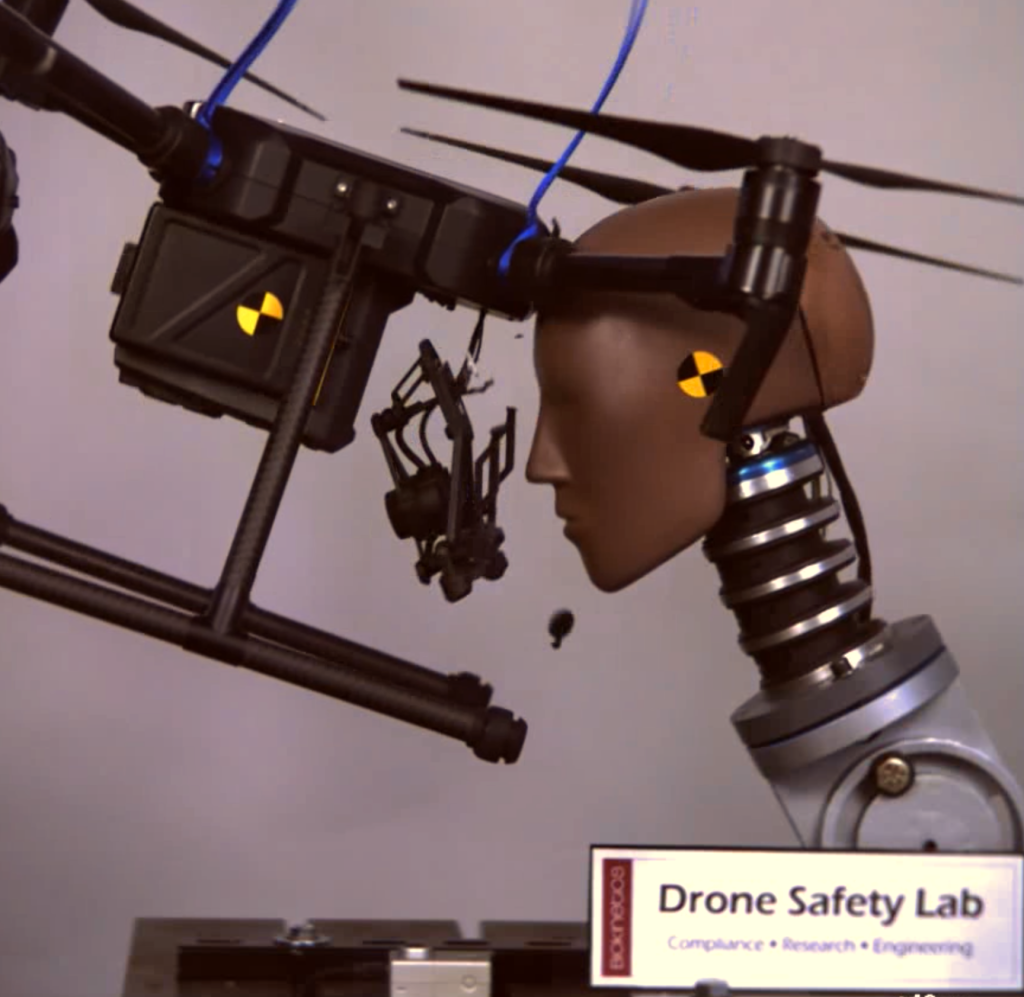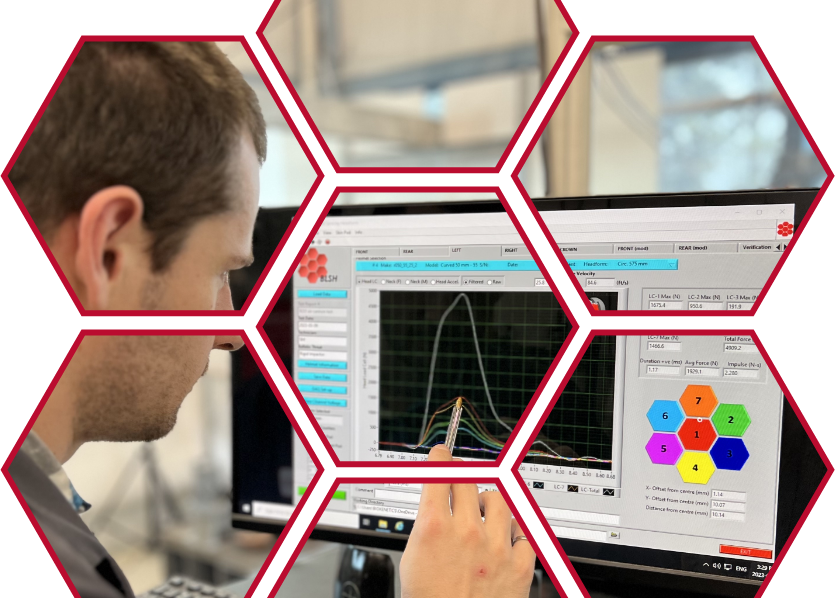Commercial drone (UAV) technology and usage continue to evolve rapidly, with regulators and manufacturers striving to stay on top of guidelines to help improve their efficiency and performance and, most importantly, ensure safety during operations. In early 2024, AVSS (Aerial Vehicle Safety Solutions Inc) managed to achieve an industry milestone by officially securing FAA approval for their Means of Compliance (MOC) for Category 2 and Category 3 flight operations over people. With this latest development, drone safety has taken a significant step forward with operational efficiency and the use of parachute recovery systems to help ensure safer operations.
At Biokinetics, we’re proud to support developments that empower and fuel the progression of safe UAV operations globally. Below, we’ll examine what this new development means and how our drone safety lab helps support manufacturers in ensuring compliance with all evolving standards. Read on to learn more.
Understanding the FAA Approval
The FAA’s Notice of Availability accepts AVSS’s proposed Means of Compliance for small unmanned aircraft (SUA weighing 25 kg and below) Category 2 and Category 3 operations over human beings. This means that the FAA accepts that AVSS’s MOC has been found to be acceptable and compliant with FAA regulations. It is, however, important to note that it does not mean that the MOC is the only acceptable method; other proposals are able to be reviewed and potentially accepted, fostering innovation and ensuring rigorous safety standards.
Examining AVSS’s MOC
AVSS’ MOC initially began development in 2020 and was subsequently submitted for review in the fall of 2021. Biokinetics was pleased to partner with AVSS to conduct extensive impact testing and research to help develop a comprehensive, proprietary MOC that includes parachute and crash testing, kinetic energy calculation, flight termination systems, mitigation for safety defects, notification processes, and more.
The approval of this MOC offers multiple benefits to drone operators and manufacturers. It opens up increased opportunities for drone flight over populations without the need for a Part 107.49 waiver. The newly accepted MOC allows operators to use a drone and parachute from AVSS to simplify and streamline compliance, reducing hurdles and enhancing safety when it matters most.
Category 2 and Category 3 Compliance Recap
Category 2 and Category 3 regulations address the over-people performance-based operating specifications for UAVs weighing more than 250 grams (0.55 pounds) that do not have an airworthiness certificate under Part 21.
Under Category 2, drones may not maintain sustained flight over open-air assemblies unless the operation complies with Remote ID. Remote identification ensures that aircrafts can be identified and tracked to enhance safety and accountability for all UAVs.
Category 3 operations have further stipulations regarding remote piloting and specify that operations are only permitted if they are within or over a closed or restricted-access airspace where all individuals are notified of the drone’s presence. Flight over people is permissible if the drone does not maintain sustained flight over any individual unless they are directly participating in operations or are under a covered structure/vehicle that offers reasonable protection.
A summary of the Part 107 regulations for Operation Over People (OOP) highlights the escalation of operating conditions with increasing drone mass and allowable impact severity Category.
Biokinetics has leveraged its decades of testing experience utilizing our industry-leading testing processes and bespoke facilities to ensure that AVSS’ MOC is compliant with the purposes outlined by Categories 2 and 3. We are pleased to have partnered with AVSS in developing their MOC and to drive forward the innovative efforts and opportunities presented by the commercial operatons of UAVs.
Looking Toward the Future
The FAA’s approval of AVSS’s Means of Compliance for Category 2 and Category 3 flight operations over people simplifies compliance for drone operators and reduces regulatory red tape while enhancing the safety of ground populations during operations. As the drone industry continues to evolve, such advancements are crucial in ensuring that safety remains at the forefront of technological innovation. Biokinetic’s state-of-the-art testing laboratories, innovative approaches, and decades of leading expertise play an essential role in adding to this forward progress, and we are pleased to partner with manufacturers to help ensure your units are compliant and as efficient as possible.
Learn more by contacting our team today.


